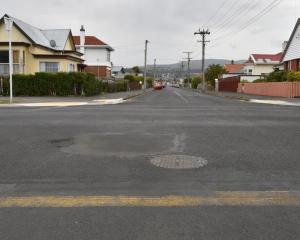The old-hand councillors will know the rigmarole.
Staff have spent three months putting together the draft budget, with the self-imposed council limit of 3% (unless there are "exceptional circumstances") in mind.
Surprise, surprise, the draft increase is 2.99%.This time there is a warning that implies new councillors with planned initiatives might have to put those ideas on hold.
"If we want to add anything new to our work programmes, we will need to reduce our spend elsewhere," a report to the council last week said. Clearly, there is little "wriggle room".
Expect, then plenty of debate among councillors on the items in the budget. It will then go for public consultation in May, when lots of groups and interests will plead for money for this and that. Usually, the causes are worthy.
But, usually, the council cannot afford to fund most of what it would like to.
A handful of new items will, no doubt, get through despite the protestations at this stage.
And extra expenses and extra windfalls will both come out of the woodwork.
Then, the final figures will be about the 3%, although in a non-election year it could creep higher. Are there not almost always "exceptional circumstances"?
Although ratepayers are assured Dunedin’s rates are in the lower quartile compared with other councils in New Zealand, there will be some scepticism because of the difficulty in comparing across different rating systems and valuations.
Mayor Dave Cull has also pointed to the local government cost index continuing to rise by 3%.
He said that means a 3% increase is "stay where you are" in quality of services.
Again, there will be frustration the increase is well above the inflation rate, which has been below 1%.
Pressure needs to be kept on councils because they have a captive market.
They often lack the hunger to minimise costs and make the hard decisions a company facing potential losses and even bankruptcy will.
Many businesses simply cannot increase prices by 3% and have to absorb and cut expenses, increase income and look for fresh ways of operating. Councils, in contrast, have the right to raise rates — and that is what they do.
One way to ameliorate short-term increases is to spread work over a longer time, such as could occur with cycleways as the plans for them are redeveloped. Another is to put off difficult decisions, agreeing to them but shunting them to long-term plans.
This is disingenuous because soon enough the matter comes around.
Then, supporters can argue the council has already agreed and councillors find it harder to reject the proposal.
In the worst of the spendthrift years, councillors tended to pay for projects by loans, looking at interest costs rather than long-term debt and long-term operating expenses.
That is a form of forward-loading rates rises that should be avoided.
So, too, must the excessive pressure of yesteryear on council-owned companies to cough up dividends when they are unjustifiable.
That practice, and the postponement of essential basic maintenance, has come back to haunt Aurora/Delta on pole replacement and other basic infrastructure.
Councillors and senior council staff every year have the unenviable and impossible task of matching expectations and expenses.
They have to make tough decisions and be prepared to reject the entreaties of specific groups and communities when necessary.
Ratepayers and citizens need to support them in this.
They cannot have all their desired amenities and projects supported while the rates are also kept down.









